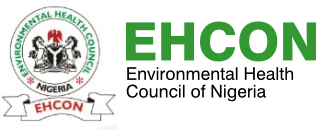NBTE, EHCON develops HND curricula on Environmental Health Specialties
EHCON organizes “Train the Trainers” Workshop on Practice Standards and Compliance
February 1, 2024Federal Ministry of Environment in collaboration with Environmental Health Council of Nigeria (EHCON) flagged off National Deratization Campaign
March 12, 2024The Environmental Health Council of Nigeria (EHCON) and the National Board for Technical Education (NBTE), has began development of Higher National Diploma (HND) curricula for Environmental Health specialties.
The Health specialties are; environmental health (8 options), public health (3 options), epidemiology and disease control (3 options) and water sanitation/hygiene (WASH) (2 options).
Speaking at the National curriculum pre-critique and critique workshop for the development of the HND curricula options on Monday in Kaduna, the Registrar of the EHCON, Dr Yakubu Baba, said environmental health is a multidisciplinary field that encompasses various specialties including water, sanitation, hygiene, air quality, occupational health, waste management, food safety, among others.
He stressed that each of the areas is crucial for the promotion of public health and the preservation of environment.
Dr. Baba therefore, said it was imperative that Nigeria’s educational programmes reflect the current challenges and advancements in the specialties in order to produce competent and well-prepared environmental health professionals.
He, also said the workshop, was aimed at critically examining the existing curricula and addressing gaps or areas that required improvement.
“Our goal is to create curricula that are comprehensive, innovative, and responsive to the evolving needs of our society. It is essential that our programs equip students with the theoretical knowledge, technical skills, and practical experience necessary to tackle complex environmental health issues,” Dr Baba said.
The Registrar, explained that the critique would consider the curricula to incorporate the most recent research findings, global best practices, and emerging trends in environmental health.
Doing so, he said it would foster a culture of continuous learning and ensure that Nigerian graduates are well-prepared to face the challenges of a rapidly changing world.
He further said the critique must focus on interdisciplinary collaboration and integration, adding that environmental health issues do not exist in isolation but rather intersect with other fields such as engineering, public health, and policy.
“Our curricula should promote collaborative learning and problem-solving to ensure that our graduates are capable of working effectively in multidisciplinary teams,”he said.




